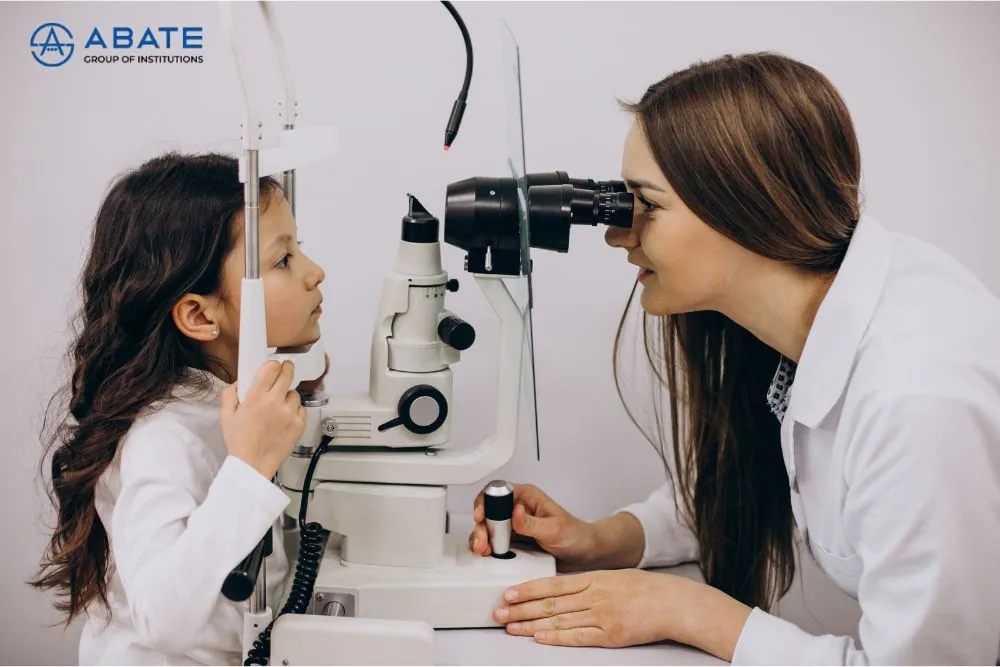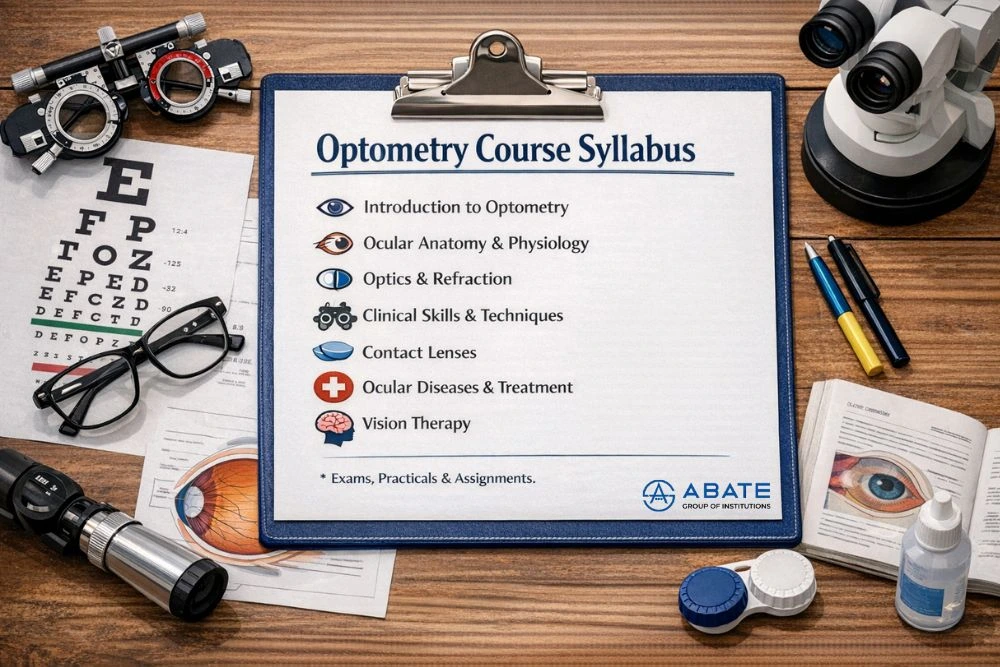From Classroom to Clinic: What to Expect in Optometry Internships

The journey from lecture halls to live patient care is one of the most transformative phases in an optometry student’s academic life. Internships are where theory meets practice—where future optometrists develop the real-world skills they need to diagnose, treat, and care for patients effectively.
At Abate Institution, we emphasize not only strong academic foundations but also immersive clinical exposure. For students pursuing BSc Optometry in Kannur, understanding what to expect during internships can help prepare them for success in this exciting stage of their education.
Why Optometry Internships Matter
Internships bridge the gap between classroom learning and clinical practice. They allow students to:
- Gain hands-on experience with eye examinations and diagnostic tools
- Develop communication and patient-handling skills
- Work alongside experienced optometrists and ophthalmologists
- Observe and manage various eye conditions in real-time
This phase is where students start thinking like healthcare professionals. Internships sharpen both clinical reasoning and decision-making abilities—skills that are essential in every optometrist’s daily practice. If you need to know the difference between optometry and ophthalmology, read our blog.
Core Learning Experiences During Internships
During an optometry internship, students are exposed to multiple aspects of eye care. Some of the key learning outcomes include:
1. Conducting Eye Examinations
Interns learn to carry out visual acuity tests, retinoscopy, and refraction. They also gain confidence in interpreting results and recommending corrective measures.
2. Using Diagnostic Equipment
Students are trained on various instruments such as autorefractors, keratometers, slit lamps, and tonometers. Familiarity with these tools is critical for accurate diagnoses.
3. Understanding Eye Disorders
Real-life patient cases help interns identify and understand conditions like glaucoma, cataracts, dry eye syndrome, diabetic retinopathy, and more.
4. Contact Lens Practice
Interns assist in the fitting and management of contact lenses, including patient education on usage and hygiene.
5. Clinical Documentation
Proper record-keeping and case documentation are emphasized, ensuring interns understand the importance of accuracy and confidentiality.
What to Expect in the Clinical Environment
Optometry interns are typically placed in eye hospitals, private clinics, optical retail chains, or multidisciplinary healthcare centers. Each setting provides a different scope of experience.
- Hospitals: Broad exposure to a variety of complex eye conditions and interdisciplinary collaboration.
- Clinics: Deeper focus on routine eye care, vision therapy, and patient counseling.
- Retail settings: Real-world experience in eyewear dispensing, customer service, and basic diagnostics.
You will be expected to assist and learn, not just observe. Mentorship plays a crucial role here—supervising clinicians guide you while also encouraging independent thinking.
Preparing for Success
To get the most out of your internship, keep these tips in mind:
- Be proactive: Ask questions, take notes, and express interest in learning all aspects of clinical work.
- Stay updated: Review clinical procedures and case studies during your off hours.
- Be professional: Respect patient confidentiality, follow hygiene protocols, and maintain punctuality.
- Track your progress: Maintain a clinical logbook to record procedures, observations, and feedback received.
Challenges You May Face (and Overcome)
Feeling overwhelmed
You may encounter medical terms or procedures you haven’t seen before. Don’t worry—take time to learn and ask for clarification when needed.
Nervous around patients
Initial hesitation is normal. As your exposure increases, your confidence will grow naturally with supervision and practice.
Time management
Balancing clinical duties, assignments, and personal study time can be tough. Develop a schedule that allows space for learning and rest.
How Abate Institution Prepares You
At Abate Institution, we ensure that students are not only academically strong but also clinically competent. Our internship program is designed in collaboration with leading eye hospitals and clinics to provide comprehensive exposure. From using advanced diagnostic equipment to interacting with real patients, students experience the full scope of what it means to be an optometrist.
If you’re considering BSc Optometry in Kannur, choosing an institution with structured clinical training and mentorship opportunities can make all the difference in your future career.
Conclusion
The transition from classroom to clinic is both exciting and challenging. Optometry internships shape you into a confident, skilled, and patient-centered eye care professional. With the right training, support, and attitude, this phase can be the most rewarding part of your academic journey.
Abate Institution remains committed to equipping students with not just knowledge, but real-world experience—ensuring they graduate ready to meet the evolving demands of eye care with competence and compassion.


